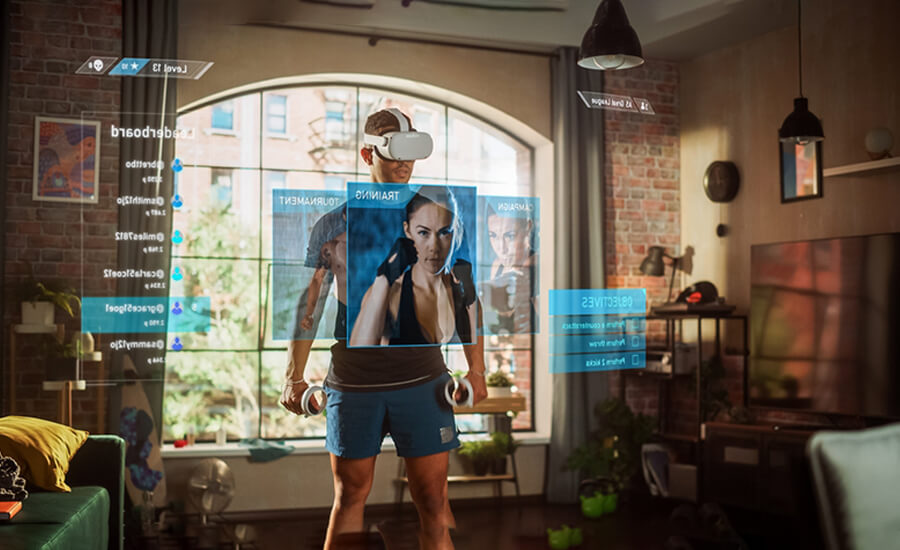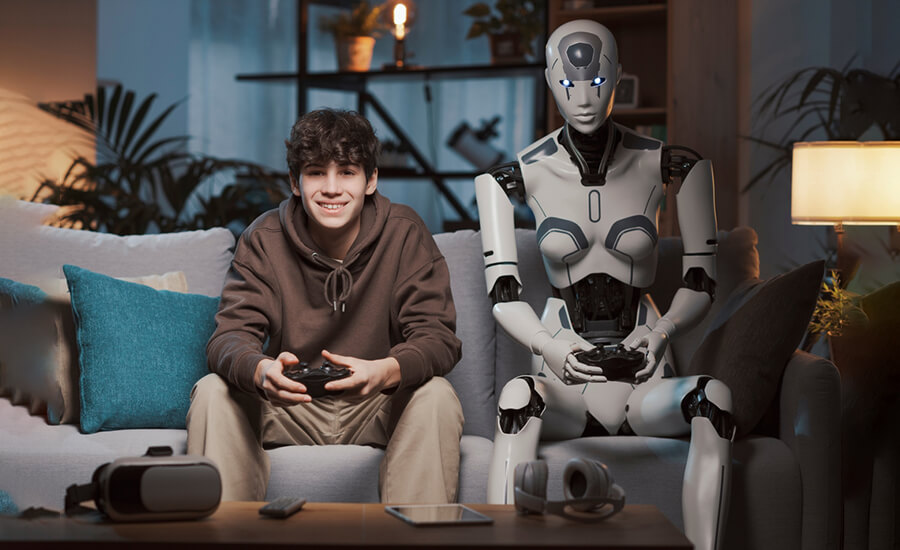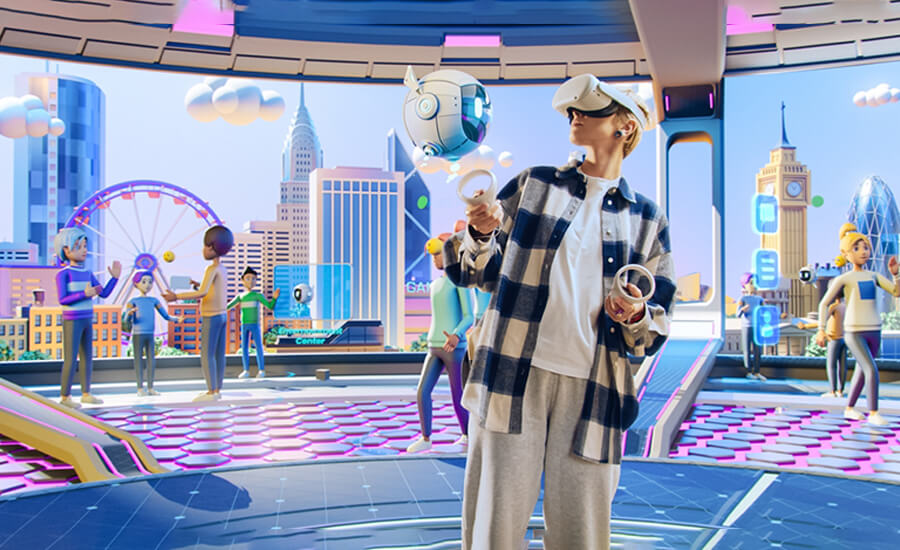In the dynamic world of gaming, artificial intelligence (AI) has been a silent partner, advancing in tandem with graphics, storylines, and interactive elements to create richer and more immersive experiences. Today, we’re witnessing AI’s transformative power in gaming, revolutionizing not just the games themselves but also the way we play them.
In game development, AI is behind the intelligent behavior of non-player characters (NPCs). Early video games could only offer limited, predictable responses from NPCs. However, with advances in AI, NPCs have become more complex and realistic. They can learn from the player’s behavior, adapt to their strategies, and even exhibit emergent behaviors that surprise and challenge players in new ways.
AI also enhances the overall game experience by procedurally generating content. Traditionally, every element in a game, from landscapes to storyline, had to be manually created, which was time-consuming and costly. AI can generate new levels, terrains, and even entire worlds, making each gaming experience unique and infinitely replayable.
AI isn’t just revolutionizing game development, but it’s also changing the way we play. In competitive gaming or esports, AI bots provide training partners that can challenge even the most skilled players. OpenAI’s Dota 2 bot demonstrated this potential by defeating some of the world’s top players. These AI bots can adapt to a player’s skill level, helping them improve over time.
Beyond gameplay, AI is changing the gaming community and culture. AI chatbots, for example, are becoming sophisticated moderators, ensuring safe and respectful interactions in gaming communities. AI tools can also combat cheating in online games by detecting unusual gameplay patterns and behaviors.
Nevertheless, the incorporation of AI into gaming is not without its challenges. Ethical concerns arise when considering the impact of ultra-realistic, AI-generated content. Could such content blur the line between fantasy and reality in harmful ways? Moreover, how do we prevent AI tools from being misused, such as creating bots that spoil the game experience for others?
As we move into the future, we can expect to see AI become an even more integral part of the gaming industry. We may see fully AI-driven games that adapt in real-time to a player’s actions, creating unique narratives and challenges. AI could also push the boundaries of virtual reality and augmented reality games, creating highly immersive and interactive experiences.


In this journey, it’s important to remember that games, at their heart, are about human experiences—joy, connection, challenge, and discovery. AI, with all its potential, is a tool that can enrich these experiences. Yet, we must wield this tool with responsibility, ensuring that the games of the future are not just technologically advanced, but also ethical, inclusive, and truly fun. Because that’s what games should ultimately be about—bringing joy and fostering connections in our shared human experience.

